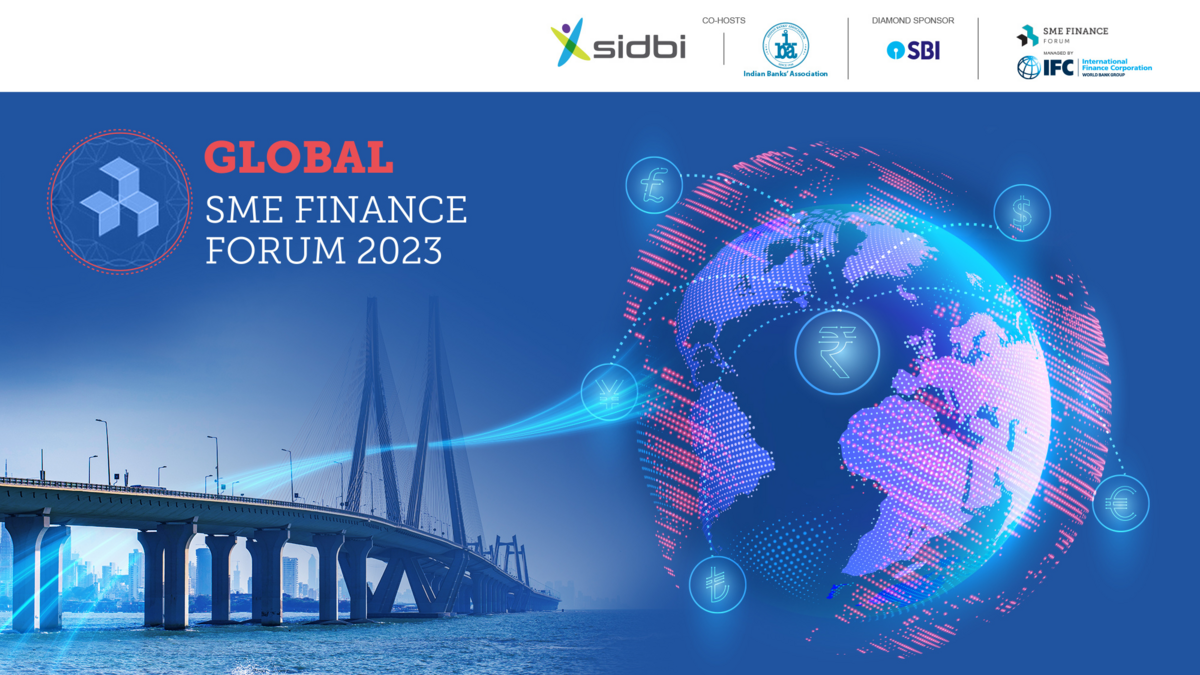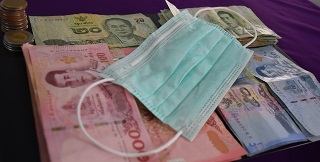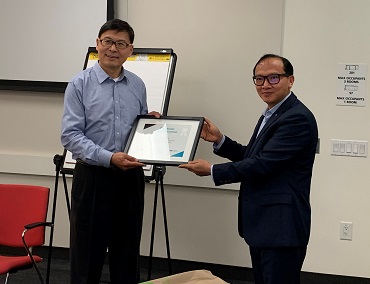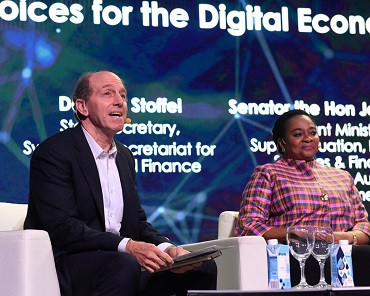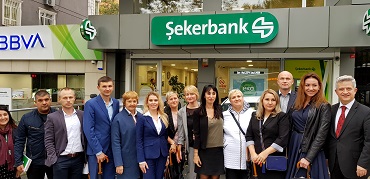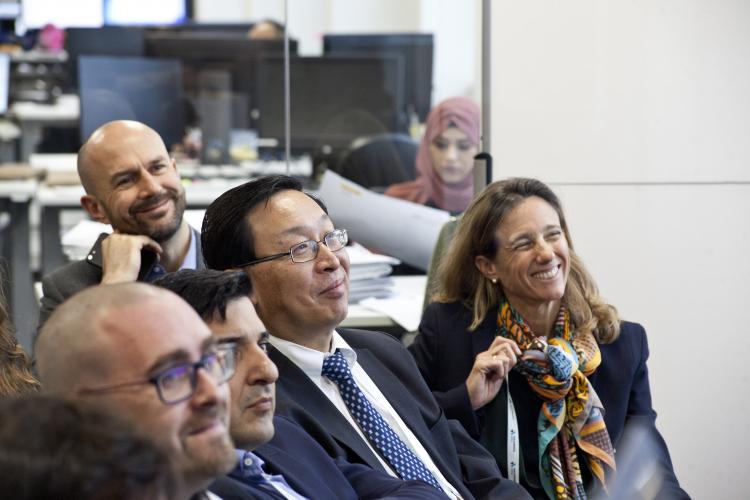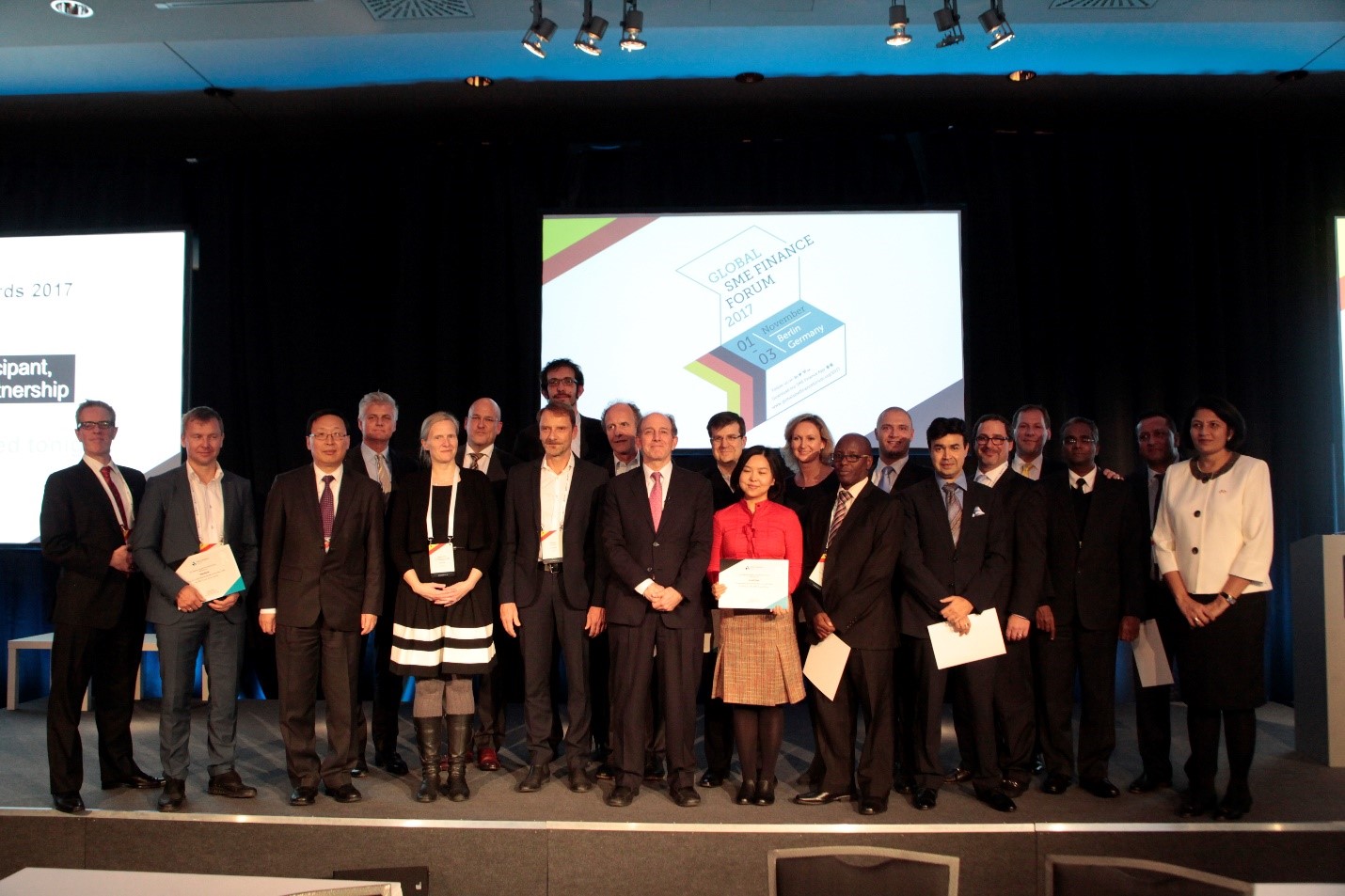Blog
Achieving financial stability and long-term relationships in MFS
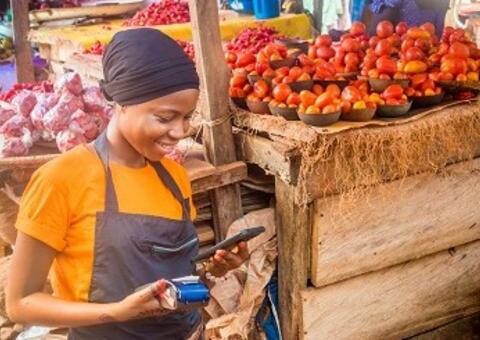
A webinar summary.
As the use of mobile financial services (MFS) grows as a tool for SME financing, MFS in sub-Saharan Africa have served as a prominent example of how innovative partnerships between banks and financial technologies can expand access to services and streamline SME lending. According to GSMA, West Africa is the second-largest region in the world utilizing mobile money accounts, with SMEs making up over 90% of businesses. With millions of people lacking access to traditional financial services, the SME financing gap in this region was almost US$136 billion, demonstrating the market potential for expanding innovative mobile financial services.
In the most recent monthly webinar, the SME Finance Forum highlighted the utility of establishing and expanding mobile financial services for SMEs through presentations from SMEFF members Ecobank and JUMO and multinational mobile telecommunications company MTN. Through presentations and a short Q&A, panelists Jeremy Quianoo (JUMO), Martin Vogdt (JUMO), Owureko Asare (Ecobank), William Danso-Abeam (Ecobank), and Eli Hini (MTN) discussed the structure and benefits of their Xpressloans partnership, emphasizing not only the market for this product but also its use as a tool for economic development.
Xpressloans is a mobile banking service that seeks to reach the unbanked and the underbanked in sub-Saharan Africa, connecting entrepreneurs to the finance they need to grow and prosper. By combining Ecobank’s banking service with MTN’s multinational customer base, anyone with a phone and mobile wallet can apply for small loans and begin developing a financial identity. This product was designed to specifically target youth and low-income customers who need small loans to supplement unstable incomes. The simple mobile service makes repayment and collection easier, with an average collection rate of 87% and nonperforming loans below 6%.
Throughout the webinar, the presenters highlighted the importance of the partnership between these different institutions as a principal component of their success. MTN’s vast mobile customer network allows them to partner with JUMO to handle finding customers, processing their data, and collecting payments, while Ecobank serves as the formal credit provider, supplying the direct financial support and partnership with regulators. This innovative business combination streamlines many aspects of the SME financing process that often create challenges when implementing MFS, with each business performing a key function to expand overall market access. MTN’s mobile banking allows for access to specific customer data, that JUMO analyzes to determine creditworthiness and limits. Through this partnership, each institution increases its access to customer data and capability to provide services, strengthening each individual business, and addressing significant SME financing gaps.
In addition to illustrating the benefits to businesses that engage in these partnerships, the webinar also demonstrated the importance of providing these services to SME development in sub-Saharan Africa. Many low-income and youth populations lack financial records, making it difficult to access the formal financial system. Majority of Xpressloan customers are under the age of 35 and only 50% have a secondary education, leaving them without access to formal banking services. Products like this one allow clients to build their credit and expand the use of these loans, often paying for education fees and ultimately building their businesses. Over time, customers are able to achieve financial stability and transfer from these short-term loans to long-term relationships with institutions in the traditional financial system, strengthening SME access to finance.
Overall, this partnership between Ecobank, JUMO, and MTN exemplifies the potential of MFS to increase financing opportunities to SMEs and broaden customer bases for financial institutions. By working with fintech and telecommunications companies, financial institutions can dramatically expand services within growing markets and develop long-term relationships with SME clients. As is clear in the context of the COVID-19 pandemic, there is a large market for mobile banking services. Furthermore, as the world becomes increasingly reliant on mobile technology, the demand for these services will continue to increase and shape banking in SME economies worldwide.




